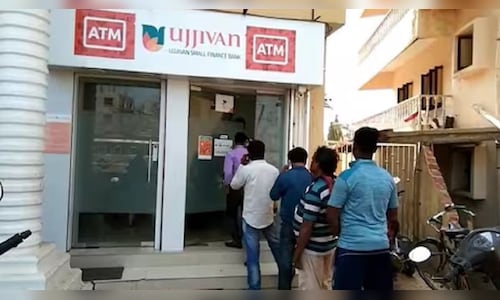

| Company | Value | Change | %Change |
|---|
While media reports pertaining to promoter cutting stakes triggered a selloff in online travel firm EaseMyTrip’s shares, stress in micro finance lending impacted shares of Ujjivan Small Finance Bank.
Interestingly, the increase in retail holdings comes at a time when institutional investors have been trimming their exposure. During the last three quarters, both foreign portfolio investors and domestic institutional investors (DIIs) have pared their stake in Ujjivan Small Finance Bank.
Also Read: What’s fuelling the surge in ETF and index fund investments in India
However, retail investors along with high net-worth individuals own almost 61% of Ujjivan Small Finance Bank as of December 2024. On the other hand, overseas investors’ ownership in the bank stood at 18%. Similarly, domestic institutional investors own less than half percent of Easy Trip Planners at the end of 2024.
Other companies with considerable retail holdings include Tata Elxsi (30%), HFCL(29%), Gujarat State Fertilizers & Chemicals (28%) and Ircon International (26%). It’s to be noted that many companies are yet to disclose their shareholding pattern for the December quarter.
Rating agency ICRA believes that the stress in the microfinance loans and seasoning will weigh upon asset quality indicators of the small finance banks in FY25. Elevated risk of the stress spillover to other asset classes would keep asset quality volatile, the rating agency said in a report.
Also Read: Bond Market Outlook 2025: What retail investors need to know
“The profitability for the SFBs to remain under pressure in the second half of FY25 as these entities would need to provide/write off delinquent loans to keep the reported GNPA/NNPA under the threshold levels required for universal bank licence application,” said Manushree Saggar, Senior Vice President & Sector Head – Financial Sector Ratings at ICRA.
The overall retail ownership in Indian equities has jumped to nearly 8% while the foreign portfolio investors have cut their holding to 17% from nearly 20% seen about three years ago. Further, according to a Securities and Exchange Board of India (SEBI) report, households in India have seen their equity investments surge by 57% as of March 2024 compared to the previous year.



